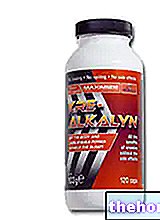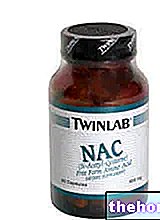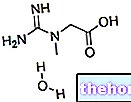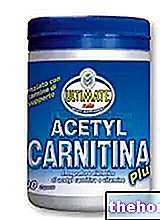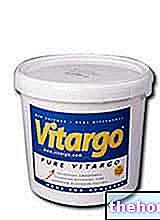Edited by Dr. Umberto Miletto
«only if you are training hard, otherwise you are wasting money!
Studies show that doing resistance exercise for one hour a day is the most effective way to increase muscle creatine.
More than 95% of the body's creatine is in the muscles. To determine how much creatine you need, you need to know your lean mass (body weight minus fat mass).
One of the theories of taking creatine involves a first phase of "super-loading" of the muscles and a subsequent phase of maintenance. Low doses of creatine have been shown not to increase muscle creatine much.
Here is what the Colgan Institute recommends regarding how to take creatine:
- a 6 day regimen for refilling and a subsequent 3-6 week maintenance phase
For the doses consult the following table

Take creatine throughout the day by dividing your daily intake by four.
The best times to take your doses are:
- 30-60 minutes before work-out
- immediately after training
- the other two doses taken at intervals to fill the day (e.g. morning and early afternoon)
It is possible to improve muscle acquisition of creatine by taking each dose with a drink containing 30-40 grams of sugar. Why sugar? Because sugar stimulates the secretion of insulin by the pancreas, which is essential for pushing creatine across the membranes of muscle cells.
Another important strategy to allow the best assimilation of creatine in those subjects who have an "inefficiency of the insulin metabolism" is to add known "enhancers" of insulin, ie 400-800 mcg of chromium picolinate, 300-600 mg of omega-3 fatty acids and 100 mg of alpha-lipoic acid, to the creatine mixture.
Last but not least, you need to take creatine in cycles. Ideal are 8-week cycles of creatine interspersed with 4 weeks of rest.
and citric acid, should increase creatine absorption. Beware of rip-offs and how you spend your money !!Creatine monohydrate is well absorbed, without being so expensive! There is no scientific evidence that any other creatine works better than plain creatine monohydrate, taken with the appropriate carbohydrates. Almost all scientific studies have been performed with creatine monohydrate, which is the one and only form of creatine for which there is scientific evidence of efficacy.
There is a lot of bad quality creatine on the market and if you have had any problems it was probably caused by the cheap brand you are using. without smell and without side effects.
For the drafting of this article, the book "Sport Nutrition Guide" by Michael Colgan, Edizioni Sporting Club Leonardo Da Vinci, 2003, which I highly recommend, was consulted.
Bibliography
1. Colgan M. The Power Program. San Diego: CI Publications, 1991.
2. Soderlund K, Hultman E. ATP and phosphcreatine changes in single human muscle fibers after intense electrical stimulation. Amer J Physiol, 1991: 261: E737-E741.
3. Harris R, et al. Elevation of creatine in resting and exercise muscles of normal subjects by creatine supplementation. Clin Sci, 1992: 83: 367-374.
4. Greenhaff P. Creatine and its application as an ergogenic aid. Int J Sports Nutr, 1995: 5: S 100-S 110.
5. Balsom PD, et al. Skeletal muscle metabolism during short duration, high intensity exercise: influence of creatine supplementation. Acta Physiol Scand, 1995: 154: 303-310
6. Balsom P, et al. Creatine in humans with special reference to creatine supplementation. Sports Med, 1994: 18: 268-280.
7. Colgan et al. The effect of creatine monohydrate ingestion on anaerobic power indices, muscular strength and body composition. Acta Physiol Scand, 1995: 153: 207-209.
8. Balsom P, et al. Creatine supplementation and dynamic high-intensity intermittent exercise. Scand J Med Sci Sports, 1993; 3: 143-149.
9. Sahelian R, Tuttle D. Creatine: Nature's Muscle Builder. New York: Avery Publishing, 1997.Bosco C, et al. Effect of oral creatine supplementation on jumping and running performance. Int J Sports Med, 1997; 18: 369-72.
Vandenberghe K, et al. Long-term creatine intake is beneficial to muscle performance during resistance training. J Appl Physiol, 1997; 83: 2055-63. 10.
10. Prevost MC, et al. Creatine supplementation enhances intermittent work performance. Res Q Exerc Sport, 1997; 68: 233-40.
11. Engelhardt R, et al. Creatine supplementation in endurance sports. Med Sci Sports Exerc, 1998; 30: 1123-1129.
12. Colgan m. Hormonal Health, Vancouver: Apple Publishing 1994 13. [email protected], e-mail to Colgan Institute 7 January 1999


